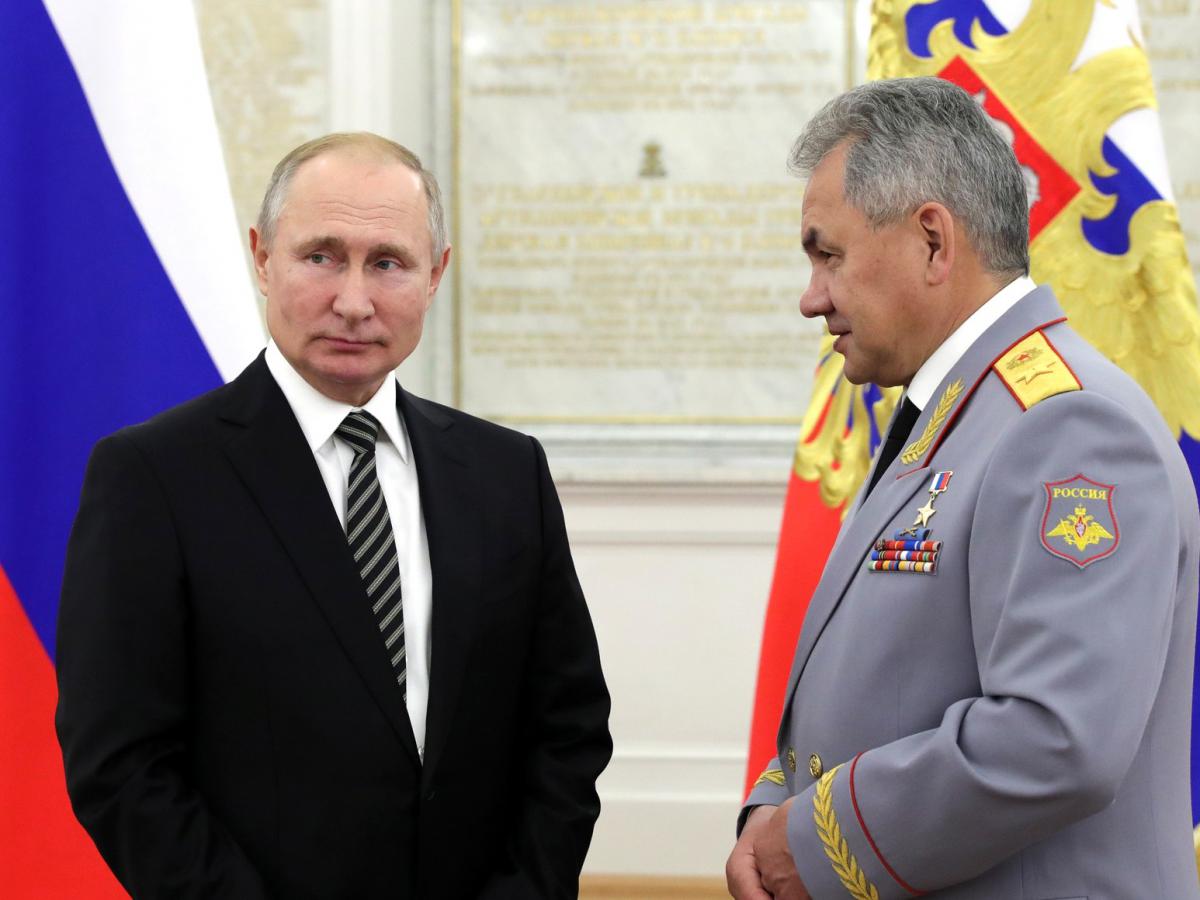
Putin: I still think of Ukrainians as our brotherly nation. What is happening is not our fault

An expanded meeting of the Board of the Ministry of Defenсe was held in Moscow on December 21. During the meeting, Defence Minister Sergei Shoigu delivered a keynote speech. President Vladimir Putin also spoke at the meeting. Below are key remarks that Shoigu and Putin made about the army, the special operation and priority tasks for 2023.
Russian President Vladimir Putin:
- Of course, the hostilities and military operations are always associated with tragedy and loss of lives. We understand this very well, we are aware of this. But since this [conflict] is inevitable, better today than tomorrow. I think that everyone present in this auditorium perfectly understands what I am talking about.
- I still consider the Ukrainian people our brotherly nation. What is happening now is a tragedy, but it does not come as a result of our policy.
- We need to study NATO's experience and tactics in order to include that in the troops training programme and equipping the army. NATO weapons must be analyzed and used to build the Armed Forces of the Russian Federation.
- Russia will continue to develop the nuclear triad. This is the main guarantee of maintaining the sovereignty and territorial integrity of the country.
- As many as 150,000 of the 300,000 mobilised are now undergoing training at training grounds. The other half is in the zone of hostilities. This is enough for the special operation.
- The past mobilisation has revealed certain problems. To eliminate them, we need to modernise the system of military commissariats.
- The hostilities have identified issues that need to be worked on, including communication issues.
- The Ministry of Defence should be attentive to criticism. The ministry should respond to it in a timely manner.
- Everything a fighter needs must be modern and reliable.
- Officers and sergeants who have gained experience in the special operation should be assigned to new positions as a matter of priority.
- It is necessary to develop and use drones in the army — they must be everywhere.
- We need to expand the arsenal of modern attack weapons.
- Sarmat intercontinental missiles will be put on combat duty in the near future.
- The Admiral Gorshkov frigate with state-of-the-art Zirkon hypersonic missile systems will enter combat service in early 2023.
- We need to saturate the troops with everything necessary — from modern first-aid kits to sights. Everything is important on the battlefield.
- There are no restrictions to finance the Russian Armed Forces. The country gives the army everything they ask for.
- We've got everything.
- We look forward to constructive and meaningful negotiations with a visible end result that would ensure equal security for all, within a certain timeframe.
- We will not engage in the militarization of the country and economy.
Defence Minister Sergei Shoigu:
- A priority goal for 2023 is to continue the special operation until its full completion.
- Russia is always open to constructive peace talks.
- Partial mobilisation was carried out to stabilise the situation, protect new territories and carry out further offensive operations.
- 300,000 people were called up for partial mobilisation, 830,000 people working at defence industry enterprises and other socially significant areas were exempt from the draft.
- More than 20,000 people volunteered for the troops.
- During the special operation, more than 100,000 people received state awards, 120 of them were awarded the title of Hero of Russia.
- More than 250,000 servicemen gained combat experience during the special operation.
- When recruiting the Armed Forces of the Russian Federation, we need to gradually raise the conscription age of citizens from 18 to 21 years, and the upper conscription age — to 30 years.
- It is necessary to increase the strength of Russian Armed Forces to 1.5 million people, including 670,000 contract soldiers.
- It is necessary to accept Borey-A project nuclear cruiser Emperor Alexander III, as well as 4 submarines and 12 surface ships into the fleet.
- To strengthen the troops participating in the special operation, the supplies of most popular types of weapons have been rescheduled from 2024-2025 to 2023.
- The Russian Army strikes military command and control system, military-industrial complex enterprises, and related facilities in Ukraine, destroying arms supplies chains.
- During special exercises, the Russian nuclear forces successfully practiced the delivery of a massive strike in response to the use of weapons of mass destruction by the enemy.